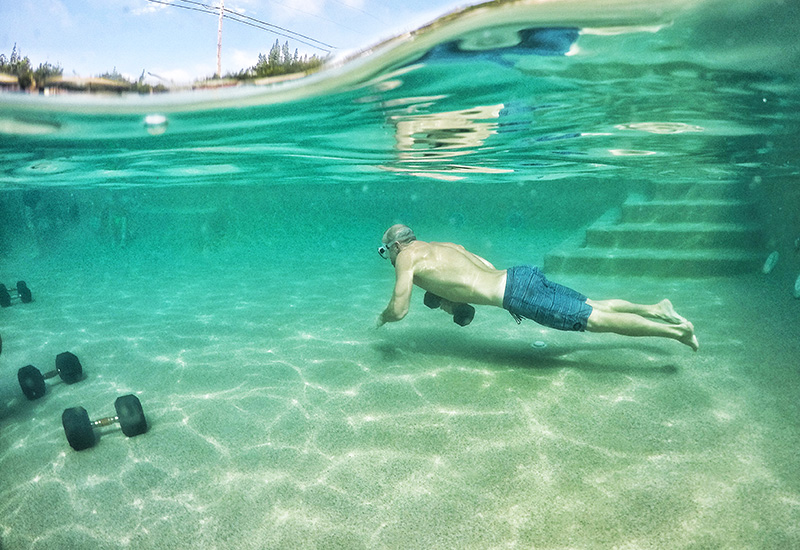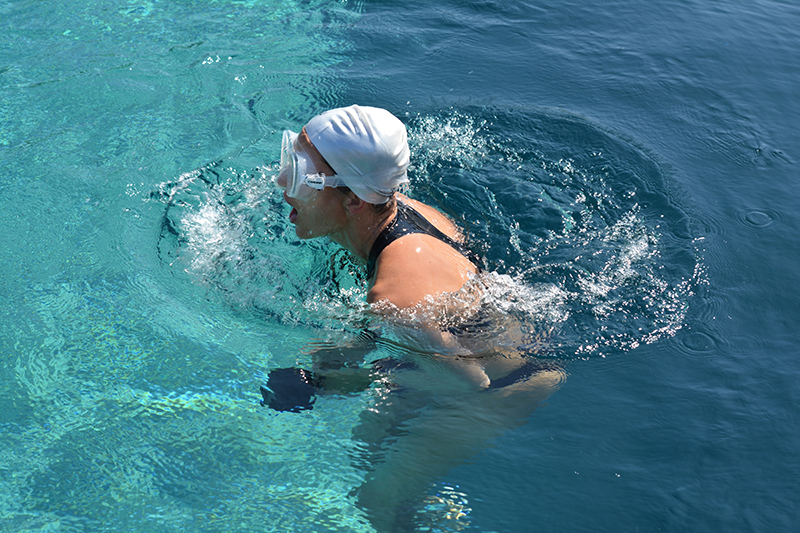XPT – Swimming Training Program
XPT Water and Swimming Training Programs are where all three central components of XPT—Breathe, Move, and Recover—converge to create a unique fitness experience. Pool training is a big part of Laird and Gabby’s fitness routines, and has evolved into an extremely scalable program that can be implemented for any fitness training level.
Within this course, we specify and outline specific physiological adaptations that arise from an XPT Swimming Training Program. These physiological adaptations result in major benefits that have been proven over 30+ years of experimentation: Novelty, Mental Fortitude, Breathing, and Reduced Injury Risk.
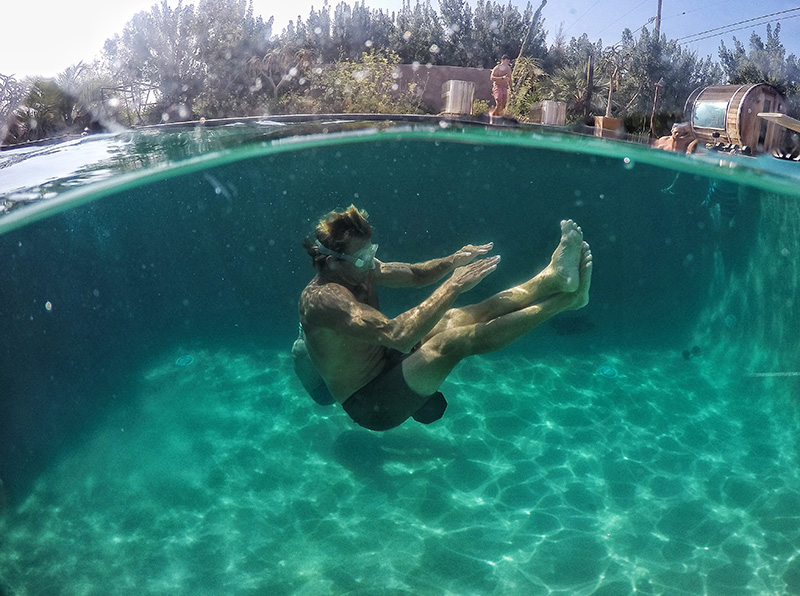
Novelty
Unless you grew up a water sports enthusiast, swim workouts provide a different kind of experience for most people. Water, as a stimulus, challenges your body in a new way, forcing you to adapt. This is how we avoid or break through plateaus, create sustainable progress, and keep workout routines fun and engaging.
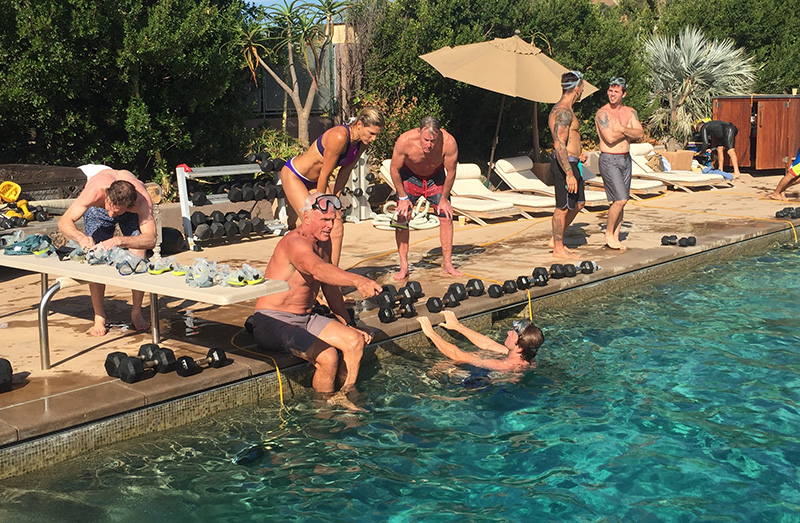
Mental Fortitude
The power of the mind to influence the physical body is astounding and well documented in scientific literature. There are many mental practices that have massive carry over to physical and cognitive performance.
Mindfulness practice—the act of intentionally bringing conscious awareness to the present task/moment—has been shown to reduce stress and anxiety, avoid burnout, and decrease negative health behaviors like binge eating, poor sleep quality, and lack of physical exercise.
XPT Pool Training offers a rare opportunity to be truly in the moment, detached from the noise that distracts us throughout our days. Repeating the practice several days a week can provide a tremendous amount of stress reduction.

Breath Training
Focused breath training is a foundation of the XPT system and underpins many benefits of XPT Water Training. During water workouts you’ll perform apnea exercises (holding your breath), which can create beneficial physiological changes, while also teaching you to control and coordinate breathing and movement.

Reduced Injury Risk
One of the biggest benefits of a swim training plan is lower risk of injury compared to working out on land.
Water density changes the influence of gravity and impact forces are significantly less in the pool. This lower impact on the joints and connective tissues allows people to perform ballistic and plyometric movements with reduced risk of injury. For this reason, pool training is commonly used during rehabilitation programs for athletes returning from injury.
In our experience, athletes recovering from injuries have been able to perform movements underwater that they are not yet able to do on land, allowing them to work certain muscles that they were not able to utilize, and tax the body in previously inaccessible ways.
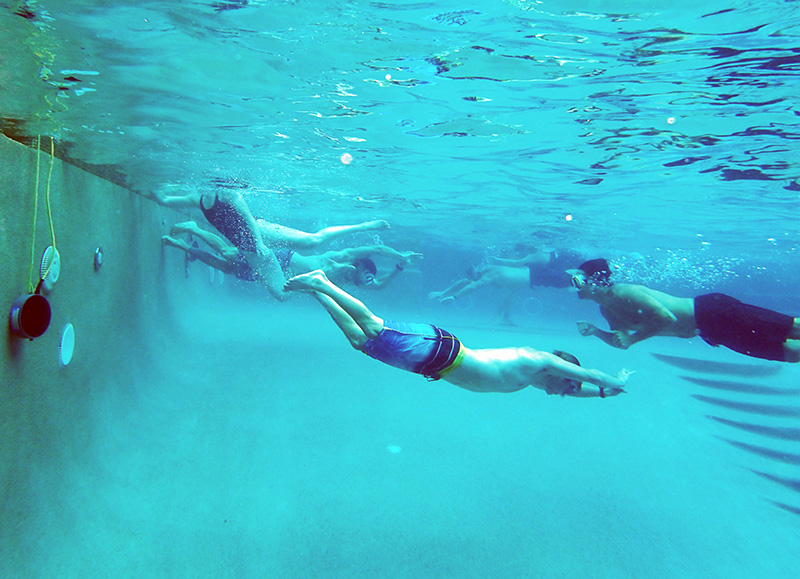
Recovery
In addition to lowering injury risk, swimming training plans are also great for recovery on days of active rest between intense workout sessions or after competition. As the water unloads a lot of the impact forces coming down during jumping and other underwater movements, most pool exercises are easier on the joints and safer than similar land-based exercises.

